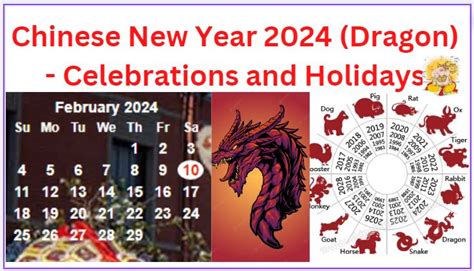Introduction

A job interview is a crucial step in the hiring process, and it’s essential to be prepared with answers to the most frequently asked questions. These questions offer hiring managers insights into your skills, experiences, motivations, and fit for the position. By anticipating and practicing your responses, you can confidently navigate the interview and increase your chances of success. In this comprehensive guide, we’ll explore the 10 most common job interview questions in 2025, providing expert advice and strategies to help you deliver impactful answers that leave a lasting impression.
1. Tell Me About Yourself
Why it matters: This open-ended question gives you the opportunity to introduce yourself, highlight your relevant skills, and demonstrate your passion for the role.
How to answer:
- Keep your response concise and focused on the most relevant aspects of your professional experience.
- Tailor your answer to the specific job description, emphasizing transferable skills and accomplishments that align with the company’s needs.
- Use specific examples to illustrate your strengths and demonstrate your ability to add value to the organization.
2. Why are you Interested in this Role?
Why it matters: This question assesses your enthusiasm for the position and your understanding of the company’s culture and industry.
How to answer:
- Research the company and the industry to gain a thorough understanding of their business objectives and values.
- Explain how your skills and interests align with the job description and the company’s mission.
- Express your genuine interest in the specific role and how it fits into your career aspirations.
3. What are Your Strengths and Weaknesses?
Why it matters: This question allows the interviewer to gauge your self-awareness, honesty, and ability to reflect on your own capabilities.
How to answer:
- Strengths: Identify 2-3 specific strengths that are relevant to the role and provide concrete examples to support your claims.
- Weaknesses: Acknowledge a weakness that doesn’t hinder your ability to perform the job effectively. Explain how you’re working to improve it and emphasize your commitment to personal growth.
4. Why Should We Hire You?
Why it matters: This question gives you the opportunity to summarize your most compelling qualifications and demonstrate why you’re the best candidate for the job.
How to answer:
- Highlight your unique skills, experiences, and motivations that make you the ideal fit for the position.
- Explain how your contributions would benefit the team and the company.
- Express your enthusiasm for the opportunity and how you can contribute to their success.
5. What are Your Salary Expectations?
Why it matters: This question gauges your financial expectations and your understanding of industry norms.
How to answer:
- Research industry benchmarks and salary data to determine an appropriate salary range.
- Be prepared to justify your expectations based on your skills, experience, and qualifications.
- Be open to negotiation and show willingness to compromise within a reasonable range.
6. What are Your Career Goals?
Why it matters: This question assesses your long-term aspirations and whether they align with the company’s culture and opportunities.
How to answer:
- Explain your short-term and long-term career goals, emphasizing areas that align with the job description and the company’s strategic direction.
- Demonstrate your ambition and willingness to grow within the organization.
- Express your enthusiasm for the potential to contribute to the company’s success.
7. How Do You Handle Stress and Pressure?
Why it matters: This question evaluates your ability to manage challenging situations and maintain composure under pressure.
How to answer:
- Describe your strategies for handling stress and pressure, such as setting priorities, delegating effectively, and maintaining a positive attitude.
- Provide specific examples of when you’ve successfully navigated stressful situations in previous roles.
- Explain how your stress-management techniques would benefit the team and the organization.
8. What are Your Hobbies and Interests?
Why it matters: This question gives the interviewer a glimpse into your personality, values, and passions outside of work.
How to answer:
- Share a few hobbies or interests that reflect your personality and skills.
- Explain how your hobbies have contributed to your personal growth and development.
- Emphasize any hobbies or interests that align with the company’s culture or industry.
9. Do You Have Any Questions for Me?
Why it matters: This question shows that you’re engaged in the interview and interested in learning more about the company and the role.
How to answer:
- Prepare thoughtful questions: Research the company and the industry to come up with insightful questions that demonstrate your interest and curiosity.
- Ask specific questions: Avoid general or vague questions. Instead, ask specific questions about the company’s culture, goals, and the role’s responsibilities.
- Be respectful: Thank the interviewer for their time and express your appreciation for the opportunity to interview.
10. What is Your Salary Expectation?
Why it matters: This question gauges your financial expectations and your understanding of industry norms.
How to answer:
- Research industry benchmarks: Research industry benchmarks and salary data to determine an appropriate salary range.
- Be prepared to justify your expectations: Be prepared to justify your expectations based on your skills, experience, and qualifications.
- Be open to negotiation: Be open to negotiation and show willingness to compromise within a reasonable range.
Conclusion
Preparing for the most frequently asked job interview questions in 2025 is essential for success. By anticipating and practicing your responses, you can demonstrate your confidence, professionalism, and enthusiasm for the role. Remember to tailor your answers to the specific job description, provide specific examples, and ask insightful questions that show your genuine interest in the company and the position. With thoughtful preparation and a positive attitude, you can ace your interview and make a lasting impression that will lead to job success.
Additional Tips
- Practice your answers: Rehearse your answers in front of a mirror or a friend to gain confidence and clarity.
- Be authentic: Answer truthfully and avoid giving canned or overly rehearsed responses.
- Dress professionally: Your appearance matters, so dress appropriately for the interview.
- Arrive on time: Punctuality shows respect and professionalism.
- Follow up: After the interview, send a thank-you note to the interviewer, reiterating your interest in the position.
FAQs Table
| Question | Importance | How to Answer |
|---|---|---|
| Tell me about yourself | Introduces you and your qualifications | Highlight relevant skills and experiences |
| Why are you interested in this role? | Assesses your passion and understanding | Research the company and align your interests |
| What are your strengths and weaknesses? | Evaluates self-awareness and honesty | Identify strengths and acknowledge a weakness |
| Why should we hire you? | Summarizes your qualifications | Showcase your unique fit and value |
| What are your salary expectations? | Gauges financial expectations | Research industry benchmarks and be prepared to justify |
Salary Expectation Table
| Position | Median Salary | Range |
|---|---|---|
| Software Engineer | $110,140 | $84,810-$143,890 |
| Marketing Manager | $79,920 | $65,210-$100,170 |
| Project Manager | $94,770 | $77,570-$116,770 |
Industries with the Highest Demand
- Technology
- Healthcare
- Education
- Finance
- Energy
Effective Interview Strategies
- Research the company and role: Familiarize yourself with the company’s culture, industry, and the specific job description.
- Develop a strong “elevator pitch”: Craft a concise and engaging summary of your skills and experiences that you can use to introduce yourself.
- Use the STAR method: When answering behavioral questions, use the STAR method (Situation, Task, Action, Result) to provide specific examples of your past experiences.
- Ask insightful questions: Prepare thoughtful questions that demonstrate your interest in the company and the role.
- Follow up after the interview: Send a thank-you note to the interviewer, reiterating your interest and summarizing your key qualifications.
Why Job Interviews Matter
Job interviews are crucial for several reasons:
- Evaluation: They allow hiring managers to assess your skills, experiences, and fit for the position.
- Matchmaking: Interviews help both candidates and companies determine if they are a good match for each other.
- Cultural fit: Interviews provide an opportunity for candidates to understand the company’s culture and whether it aligns with their own values.
- Negotiation: Interviews often involve salary negotiations, which can impact your financial well-being.
- Career advancement: Job interviews are an essential step in the career advancement process.
How to Prepare for Job Interviews
Preparing for job interviews involves several steps:
- Research the company and role: Gather information about the company’s culture, industry, and the specific job description.
- Practice your answers: Rehearse your answers to common interview questions in front of a mirror or a friend.
- Dress professionally: Make a good impression by dressing appropriately for the interview.
- Arrive on time: Punctuality shows respect and professionalism.
- Prepare questions to ask: Asking thoughtful questions demonstrates your interest in the company and















